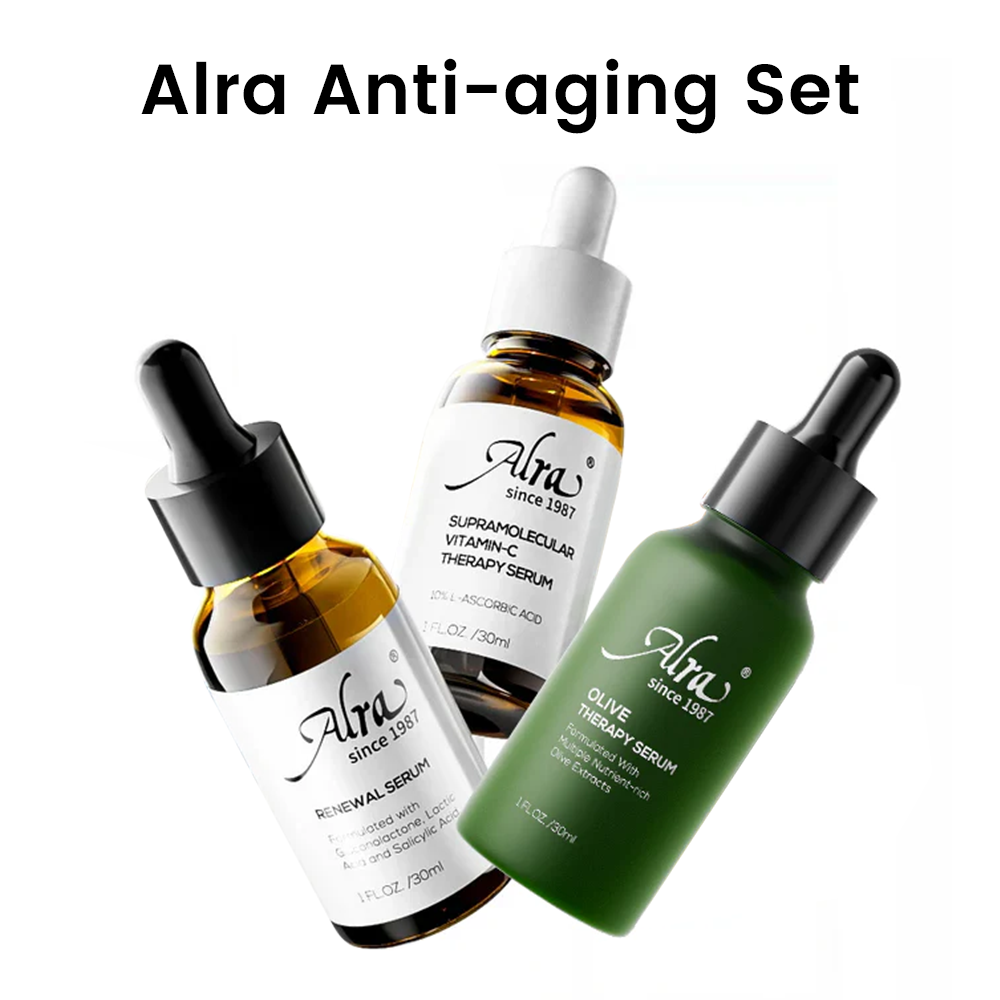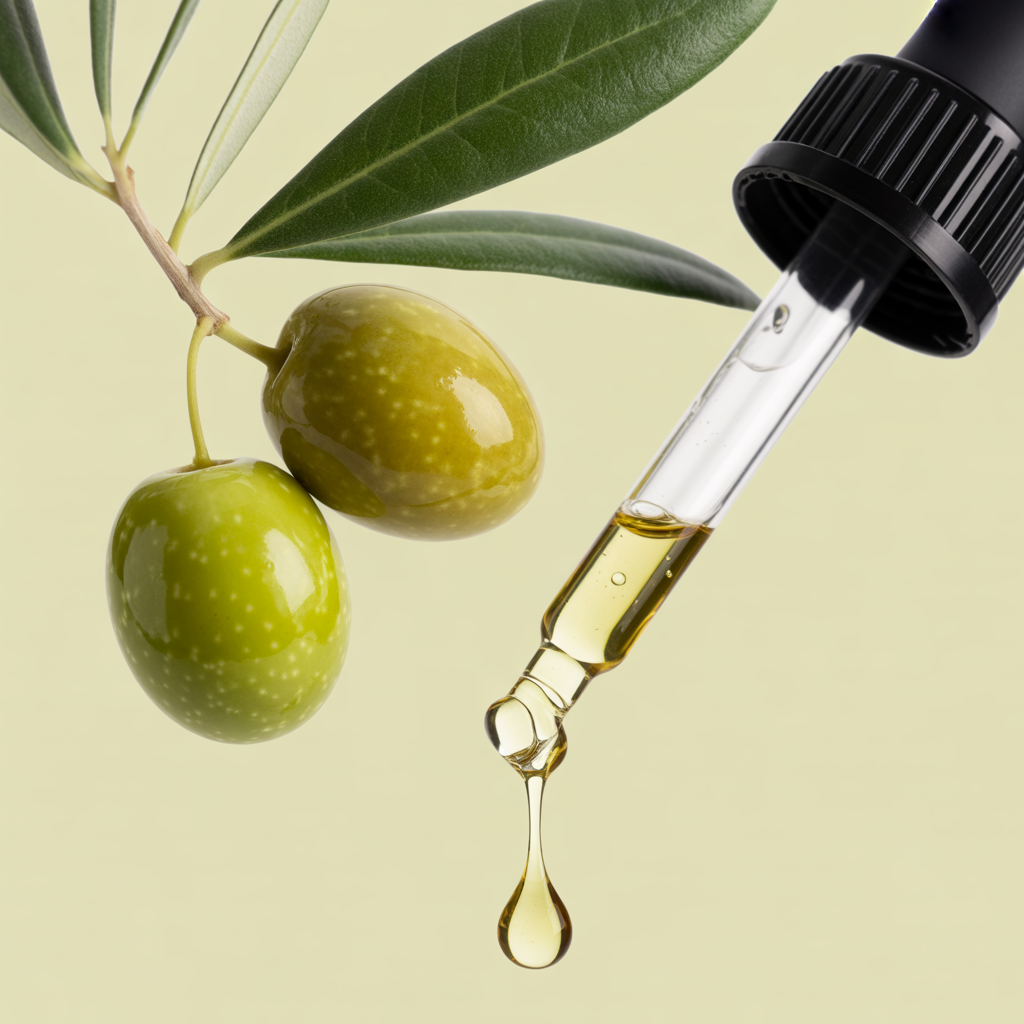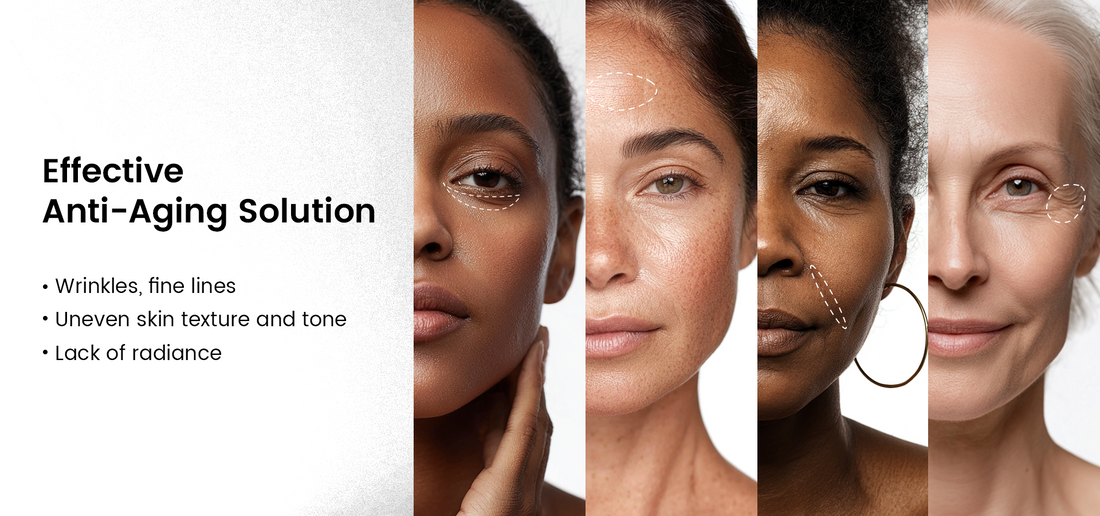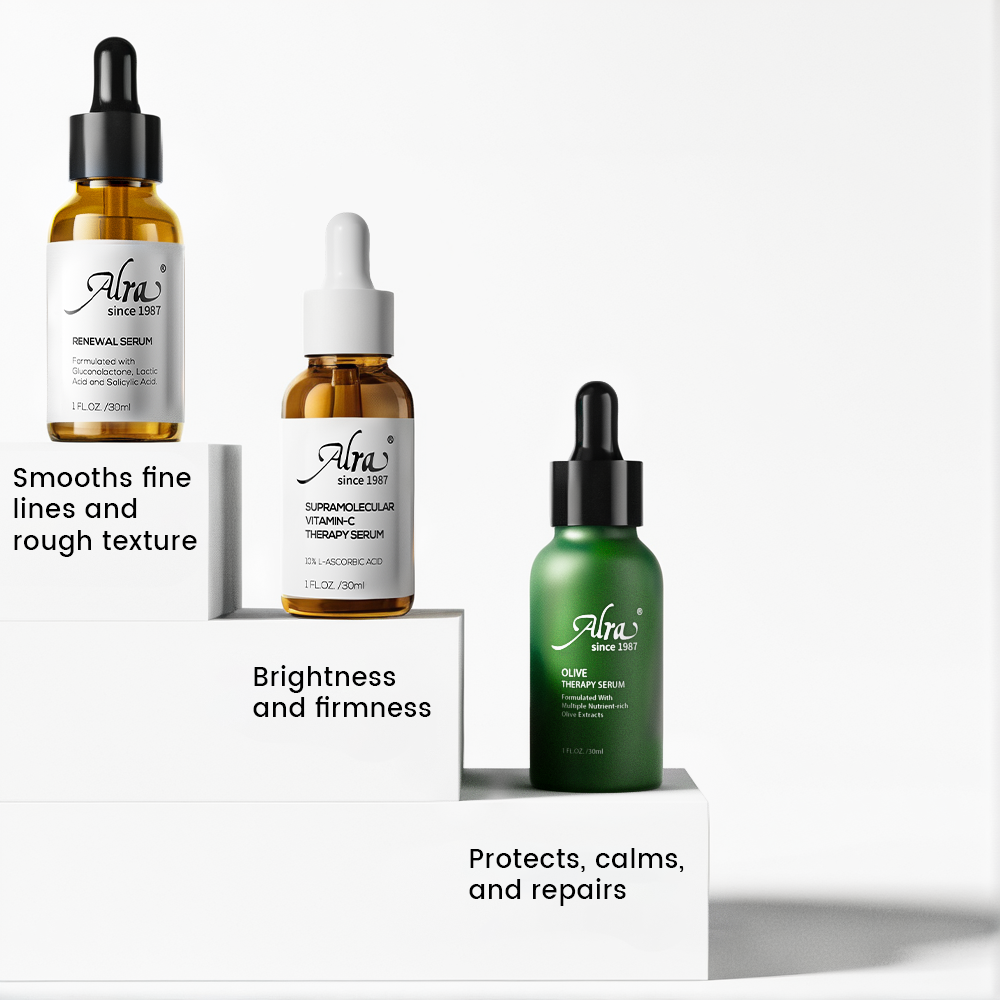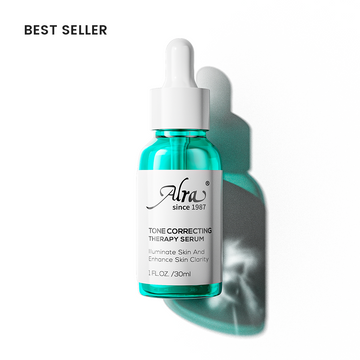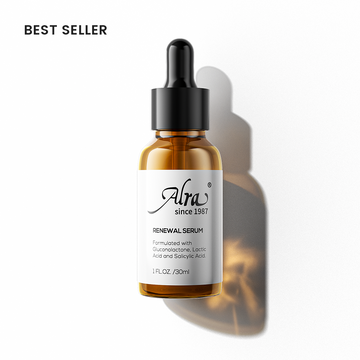Ever walked down a skincare aisle and felt overwhelmed by all the Vitamin C serums out there? Some say “pure Vitamin C,” others mention “Vitamin C derivatives,” and they all promise glowing, even-toned skin. But what do these terms actually mean, and which one is right for you?
Let’s break it down in plain language and explore how newer formulas like Alra’s Supramolecular Vitamin C serum manage to deliver the best of both worlds.
What is Vitamin C, Anyway?
Vitamin C (aka ascorbic acid) is one of the most-loved ingredients in skincare. It’s an antioxidant, which means it helps protect your skin from free radicals – unstable molecules from things like sun exposure and pollution that speed up aging. Your body also uses Vitamin C to make collagen, the protein that keeps your skin firm and bouncy.
We get Vitamin C from foods like oranges and bell peppers, but when it comes to skin, topical Vitamin C is more effective. Eating citrus is great for your health, but only a tiny amount of that Vitamin C ever reaches your skin. Applying it directly is how you actually see the brightening, anti-aging, and spot-fading effects.
Why Everyone Loves Vitamin C in Skincare
Vitamin C is considered a multi-tasker because it addresses several skin concerns at once. As a widely studied skincare active, vitamin C is trusted by dermatologists for its benefits and efficacy:
Basically, if you want a single ingredient that brightens, firms, and protects, Vitamin C checks all the boxes.
Pure vs. Derivative Vitamin C: What’s the Difference?
Here’s where things get tricky. Not all Vitamin C serums are the same. There are two main types you’ll see on ingredient lists:
Pure Vitamin C (L-Ascorbic Acid)
-
Pros: This is the gold standard. It’s the form of Vitamin C most studied and proven to work. It gives you the full benefits – antioxidant protection, brightening, and collagen boosting – usually in 10–20% concentrations.
-
Cons: It’s unstable and breaks down quickly when exposed to air, light, or heat (ever seen a Vitamin C serum turn brown? That’s oxidation). It also needs to be formulated at a low pH (acidic), which can sting or irritate sensitive skin.
Vitamin C Derivatives
-
Pros: These are modified forms of Vitamin C (like magnesium ascorbyl phosphate or tetrahexyldecyl ascorbate). They’re more stable, gentler on skin, and don’t require a super low pH. Great for beginners or anyone with sensitive skin.
-
Cons: They have to convert into pure Vitamin C after they’re absorbed, so they’re generally less potent. You might get some brightening, but not always the same collagen or antioxidant boost as pure Vitamin C.
Bottom line: Pure Vitamin C is more powerful but can be irritating. Derivatives are gentler and more stable but may not give you the full results. Ideally, you’d want something that combines the potency of pure Vitamin C with the gentleness of derivatives, which brings us to...
Alra’s Supramolecular Vitamin C Therapy Serum
This serum uses
pure 10% Vitamin C (the effective form) but wraps it in something called a
beta-cyclodextrin complex. Sounds fancy, but here’s what it means in simple terms:
-
Encapsulation for stability: The Vitamin C is “locked” inside a molecular carrier, so it doesn’t oxidize as fast (storing in a cool, dark place is still recommended for prolonged efficacy).
-
Gentle, slow release: The complex releases Vitamin C gradually into the skin instead of all at once, which reduces stinging and irritation. Even people with reactive or sensitive skin can often tolerate it.
-
Better absorption: This delivery method helps Vitamin C penetrate deeper into the skin, so you get more out of the ingredient.
The result? You get the potency of pure Vitamin C – brightening, collagen boost, antioxidant defense – without the usual downsides.
Why This Matters for Your Skin
Many people avoid pure Vitamin C because of irritation or because their serums oxidize too quickly. Others settle for derivatives that are easier to use but less effective. A supramolecular formula like Alra’s bridges that gap:
-
Brightens and fades dark spots fast (without sting)
- Boosts collagen to soften fine lines
- Protects against pollution and UV damage
- Gentle enough for daily use, even on sensitive skin
It’s also free from fragrances, essential oils, and drying alcohols – a big plus if your skin reacts to those extras.
How to Use Vitamin C in Your Routine
- Apply it to clean, dry skin in the morning (before sunscreen).
- If you use strong actives (like retinol or acids), alternate them – Vitamin C in the morning, retinol at night.
- Store it in a cool, dark place and close the cap tightly to prevent oxidation.
Consistency is key: most people start seeing brighter, clearer skin within 2–4 weeks.
Final Takeaway
Vitamin C isn’t just hype – it’s one of the few skincare ingredients that dermatologists consistently recommend for almost everyone. Whether you choose pure Vitamin C for maximum results or a derivative for gentleness, understanding the difference helps you pick the right formula for your skin’s needs.
If you’ve struggled with irritation from pure Vitamin C before, Alra’s supramolecular formula is worth a look. It delivers the potency of pure ascorbic acid in a stable, gentle formula, so you get the glow, the collagen boost, and the antioxidant protection without the sting.
Your skin deserves bright, healthy radiance, and Vitamin C might just be the simplest way to get there.



